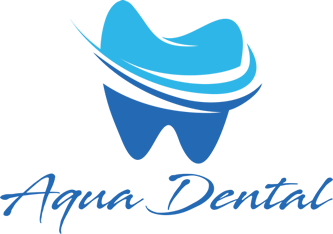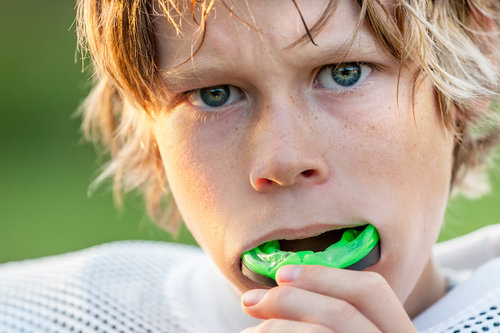Now that the kids are back in school, the athletic programs are firing up again. While collision and contact sports, such as football, are higher-risk sports for the mouth, any young athlete may experience a dental injury in non-contact activities too, such as gymnastics and skating. When it comes to protecting your kid’s mouth, a mouthguard is an essential piece of athletic gear that should be part of their standard equipment from an early age.
Imagine what it would be like if your son or daughter suddenly lost one or two of their front teeth. Smiling, talking, eating—everything would suddenly be affected. Knowing how to prevent mouth injuries are especially important if your child participates in organized sports or other recreational activities.
Mouthguards help cushion a blow to the face, minimizing the risk of broken teeth and injuries to lips, tongue, face or jaw. They typically cover the upper teeth and are a great way to protect the soft tissues of the tongue, lips and cheek lining. “Top teeth take the brunt of trauma because they stick out more,” says Drs. James and Samuel Owens, a team of pediatric dentists in Broken Arrow. “Naturally, the bottom teeth are a little more protected because they are further back.”
The best mouthguard is one that has been custom made by your dentist. However, if you can’t afford a custom-made mouthguard for your child, a stock mouthguard or a boil-and-bite mouthguard from the drugstore are good alternatives. Learn more about each option:
- Custom-made: These are made by your dentist for you personally. They are more expensive than the other versions because they are individually created for fit and comfort.
- Boil and bite: These mouth protectors can be bought at many sporting goods stores and drugstores and may offer a better fit than stock mouth protectors. They are first softened in water (boiled), then inserted and allowed to adapt to the shape of your mouth. Always follow the manufacturers’ instructions. CustMbite MVP and CustMbite Pro are a boil and bite mouthguards that have earned the ADA Seal of Acceptance.
- Stock: These are inexpensive and come pre-formed, ready to wear. Unfortunately, they often don’t fit very well. They can be bulky and can make breathing and talking difficult.
A properly fitted mouthguard may be especially important for kids who wear. If your child has a retainer or other removable appliance, they should not wear it during any contact sports. A blow to the face could damage the brackets or other fixed orthodontic appliances. A mouthguard also provides a barrier between the braces and your cheek or lips, which will help you avoid injuries to your gums and cheeks.
Talk to your dentist or orthodontist about selecting a mouthguard that will provide the right protection. Although some mouthguards only cover the upper teeth, your dentist or orthodontist may suggest that you use a mouthguard on the lower teeth if you have braces on these teeth.


Recent Comments